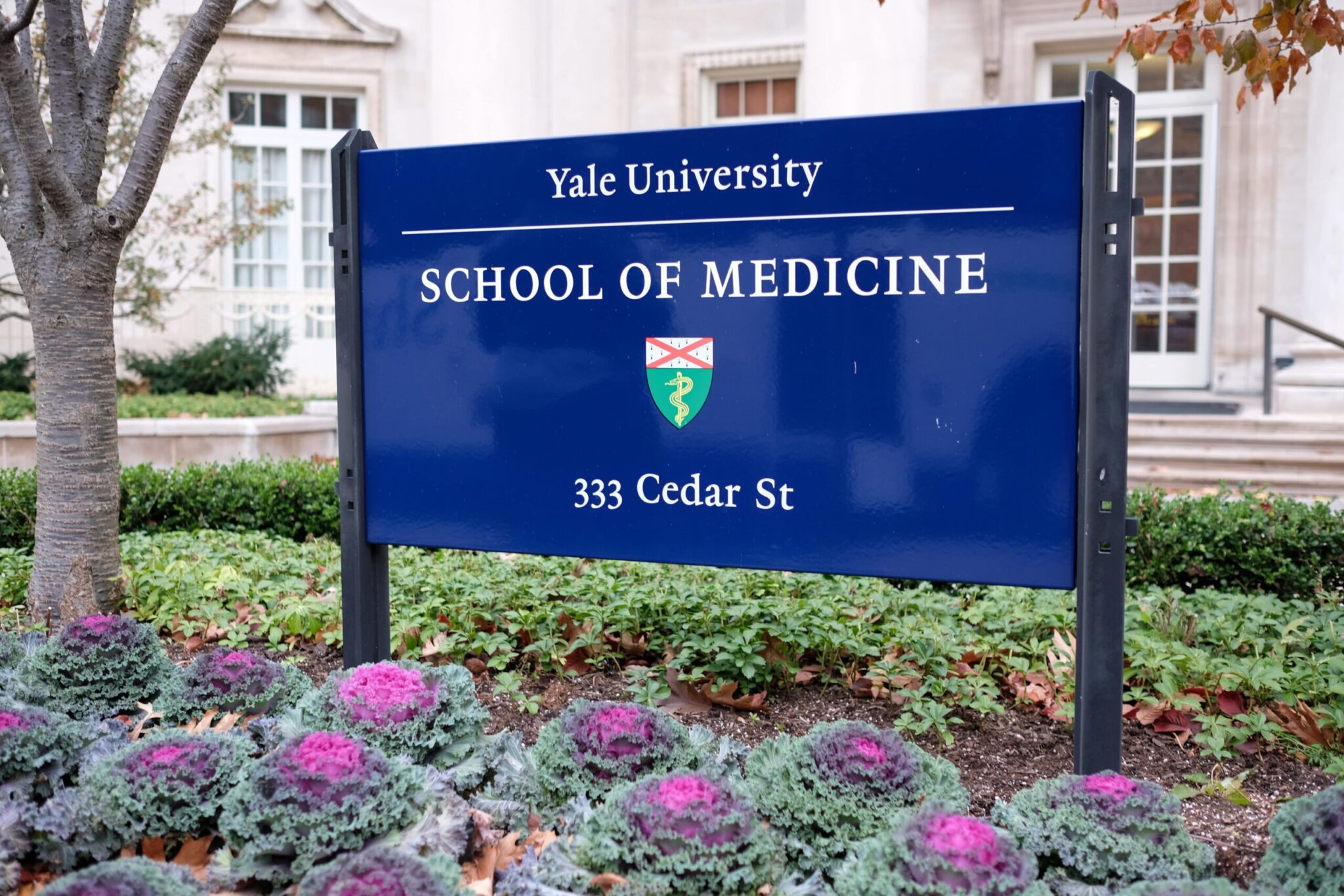School of Medicine creates new aging initiative
A new cross-department geroscience initiative from the School of Medicine studies the mechanisms involved in aging.

Eric Wang, Senior Photographer
The School of Medicine has launched an initiative to better understand the biological process of aging — and how to delay it.
Compared to traditional approaches in the field of geroscience — which studies how to treat aging-related diseases — Yale’s new initiative hopes to focus on the underlying mechanisms that drive aging, rather than treating specific diseases linked to growing older. The initiative provides grants to labs across scientific disciplines that are interested in studying aging processes, even if they do not usually study the geroscience fields.
“We want to develop agents that specifically slow down the aging process and that would ultimately affect diseases across the entire spectrum, not just heart disease, not just arthritis,” Thomas Gill, director of the Yale Program on Aging and the initiative’s founder said. “By slowing down aging, there would be benefits in reducing the occurrence of these new conditions or delaying the onset of these new conditions.”
According to Gill, the initiative emphasizes the distinction between lifespan and “healthspan,” healthy life with a good quality of living.
He believes that elongating someone’s lifespan does not necessarily mean bettering a patient’s quality of living.
“If we ask most people what is most important to them, they say, ‘I want to maintain my health, I want to maintain my function,’” Gill said. “It’s not like I want to live until 150, because you can live until 150 but be completely debilitated with a dozen diseases. That is not necessarily fun.”
Currently, caring for elderly patients focuses on treatments targeted towards specific diseases, Gill said. But oftentimes, as one treatment for a disease begins to work, a patient might develop another disease — a byproduct, he said, of aging. Through the initiative, he said that hopes to target the aging process itself, rather than the symptoms of aging.
By delaying the onset of the aging process and the onset of these diseases, scientists can improve the healthspan of an aging population.
For scientists like Heidi Zapata, an infectious disease specialist at the School of Medicine, the difference in lifespan and healthspan is key in her research of age and HIV infection.
“The HIV aging population is going to be an issue,” Zapata said. “With [HIV] drugs, people are no longer dying the way they were. They are living longer and basically have normal lifespans, but not really longer healthspans.”
To target aging processes, the researchers interviewed told the News, the initiative provides grants to scientists who might not ordinarily study the connections between aging and their field. One of the requirements to apply for the grant is for a proposed study to span at least two departments.
For Ruth Montgomery, an immune system specialist and Professor of Medicine at the Yale School of Medicine, collaboration across departments is already a common practice. To study aging specifically, she said, independent researchers could benefit from collaboration across departments.
“Whatever their interesting area was, bring aging into it to broaden the focus,” Montgomery said. “That is a very tangible way to increase the studies of aging around campus. It gives a very tangible message in terms of the financial support for the pilot grant to encourage people to undertake these projects.”
The grant can also be an efficient way for scientists to choose what they want to pursue next.
“One of the things about scientists is that we’re very curious,” Montgomery added. “All over the Yale campus are people with great ideas. But we can’t act on every idea. So having the support of the dean and department chairs to help you initiate the experiments is huge.”
The researchers the News interviewed said they believe that studying the aging process is particularly relevant today. They said they are skeptical about the ability of the American healthcare system to handle a growing aging population.
Mitigating those healthcare consequences, they said, could help.
“The pandemic hit the healthcare system really hard and I think it is still recovering from that,” Zapata said. “The increasing aging population is going to be an issue, we have to think about that.”
Gill said that he hopes geroscience research can help improve patients’ “healthy longevity.”
In turn, he said he believes that studying aging in the health care system can help accommodate an aging population.
“Older people can contribute and continue making important contributions to society,” Gill said “It may be that they retire from their long term position, but they take a part time position in an area that they’ve become interested in, or they’re doing volunteer work. They can become more involved in their grandchildren’s lives and even become great-grandparents.”
The School of Medicine was founded in 1810.
Correction, Nov. 11: A previous version of this article contained an error in a quote from Ruth Montgomery due to a grammatical transcription error.







